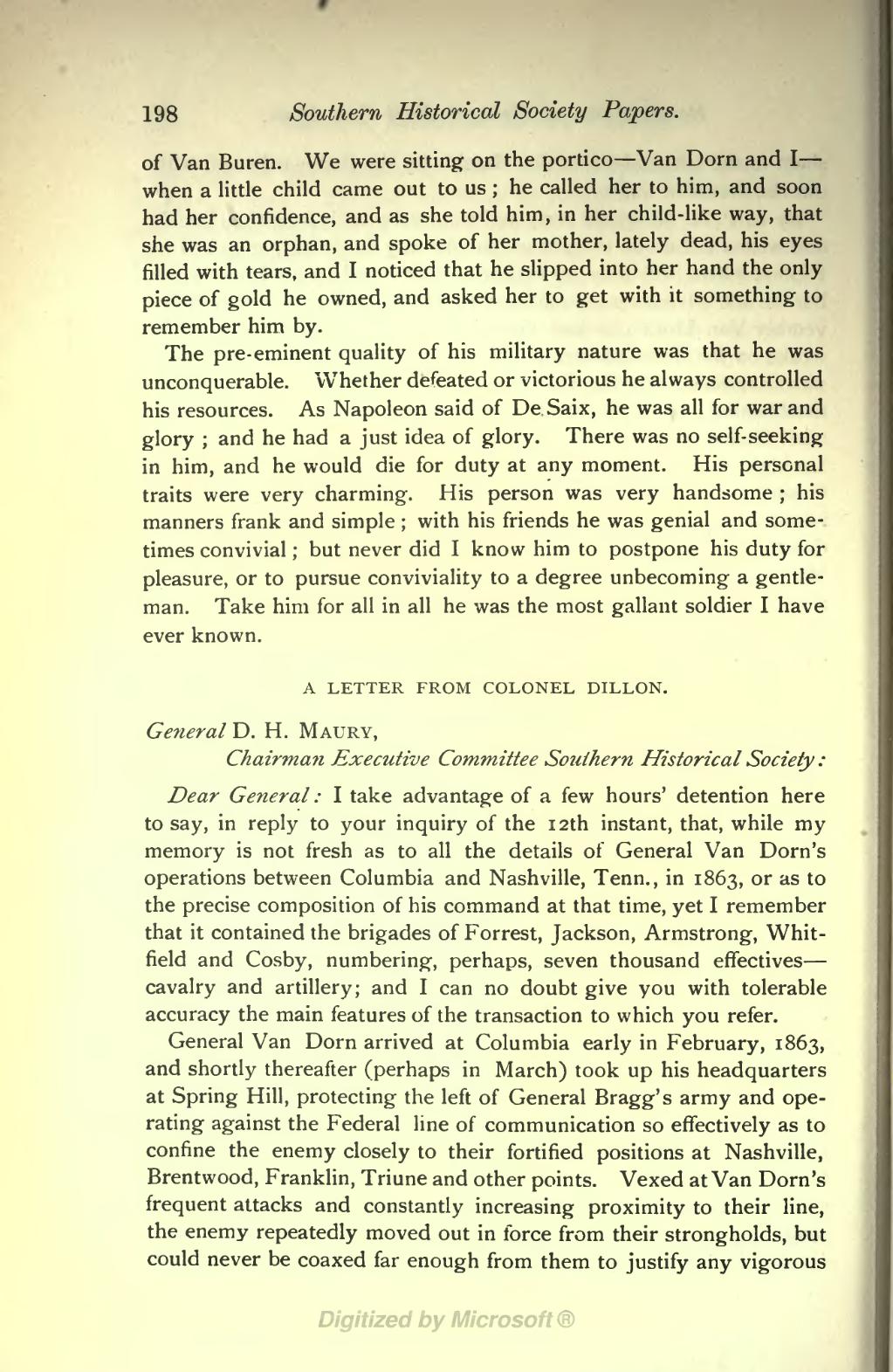198 Southern Historical Society Papers.
of Van Buren. We were sitting on the portico Van Dorn and I when a little child came out to us ; he called her to him, and soon had her confidence, and as she told him, in her child-like way, that she was an orphan, and spoke of her mother, lately dead, his eyes filled with tears, and I noticed that he slipped into her hand the only piece of gold he owned, and asked her to get with it something to remember him by.
The pre-eminent quality of his military nature was that he was unconquerable. Whether defeated or victorious he always controlled his resources. As Napoleon said of De.Saix, he was all for war and glory ; and he had a just idea of glory. There was no self-seeking in him, and he would die for duty at any moment. His personal traits were very charming. His person was very handsome; his manners frank and simple ; with his friends he was genial and some- times convivial ; but never did I know him to postpone his duty for pleasure, or to pursue conviviality to a degree unbecoming a gentle- man. Take him for all in all he was the most gallant soldier I have ever known.
A LETTER FROM COLONEL DILLON.
General D. H. MAURY,
Chairman Executive Committee Southern Historical Society :
Dear General : I take advantage of a few hours' detention here to say, in reply to your inquiry of the I2th instant, that, while my memory is not fresh as to all the details of General Van Dorn's operations between Columbia and Nashville, Tenn., in 1863, or as to the precise composition of his command at that time, yet I remember that it contained the brigades of Forrest, Jackson, Armstrong, Whit- field and Cosby, numbering, perhaps, seven thousand effectives cavalry and artillery; and I can no doubt give you with tolerable accuracy the main features of the transaction to which you refer.
General Van Dorn arrived at Columbia early in February, 1863, and shortly thereafter (perhaps in March) took up his headquarters at Spring Hill, protecting the left of General Bragg' s army and ope- rating against the Federal line of communication so effectively as to confine the enemy closely to their fortified positions at Nashville, Brentwood, Franklin, Triune and other points. Vexed at Van Dorn's frequent attacks and constantly increasing proximity to their line, the enemy repeatedly moved out in force from their strongholds, but could never be coaxed far enough from them to justify any vigorous
